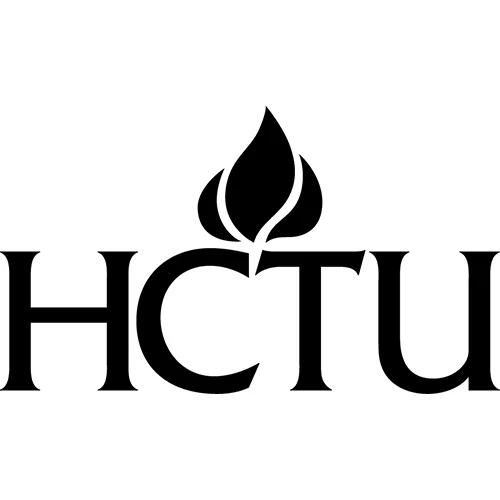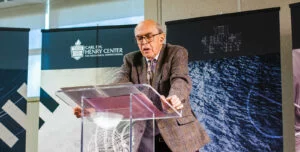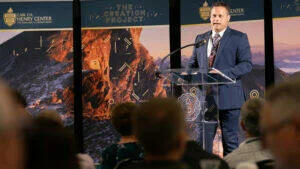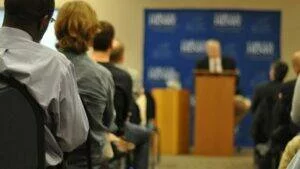The current conversation about science and Christianity – particularly how to read Genesis in light of scientific advance – did not fall from the sky, but developed out of a historical stream of thinking, discovery, and intellectual inquiry. Our generation is not the first to ponder these issues, and a storehouse of insight awaits those who are willing to journey to the past.
Clinton Ohlers (PhD, University of Pennsylvania), a research fellow for the Henry Center’s Creation Project for the upcoming 2016–2017 academic year and a historian of science and religion, believes that proper historical context is essential to developing an evangelical doctrine of creation and responding to perceived conflict between science and Scripture.
Drawing from the early 1800s to the 1930s, a period of rapid scientific discovery (and ensuing controversy) that increasingly pushed discussions of supernatural design to the intellectual margins, Ohlers will examine evangelical commentaries written on the book of Genesis, paying special attention to their interaction with the “Baconian” scientific reform in the early 1800s to the “modern synthesis” of Darwinism and Mendelian genetics in the 1930s through the work of Ronald Fisher.
Ohlers hopes that his research project will provide “a window to better understanding the theological, scientific, and underlying philosophical commitments of the actors of the nineteenth and twentieth centuries.” By first looking backwards, his research can then point forward and “offer guidance to scholars and laymen, Evangelical and otherwise, as they address the scientific developments of that era and those of the twenty-first century.”
A Personal History
Ohlers’ interest in the work of the Creation Project is directly connected to his own faith journey. As an undergraduate at the University of Illinois, Ohlers believed that “science – primarily in the form of Darwin’s theory of evolution – demonstrated that there was no need for a creator.” Yet he reasoned that if God did exist,“I decided that it would require more faith for me to remain an atheist than to follow Christ” searching for the truth would eventually lead to God. After two years of wrestling with intellectual questions about the faith, Ohlers reflects, “I decided that it would require more faith for me to remain an atheist than to follow Christ, and it was at that point I gave my life to Christ and became a Christian.”
It was God’s answers to prayer that began to transform Ohlers’ naturalistic worldview. “You could say, to paraphrase physicist Paul Davies, by all rational observation it appeared as if a super-intellect was monkeying with the events of my life – in a very positive way,” he says. Yes, his beliefs changed, but Ohlers adds, “more accurately it was my experience of reality that changed. Cause and effect changed.”
No Time Like the Past
Ohlers has observed a “surge of interest among historians of science in these topics in recent years,” and his diverse academic background positions him well to engage the current climate. After earning a MA in Christian Thought from Trinity Evangelical Divinity School examining the history of the doctrine of inerrancy under John Woodbridge, Ohlers completed his PhD in American and European Intellectual History at the University of Pennsylvania, focusing on the intersection between the history and philosophy of science and religious thought under Bruce Kuklick, Warren Breckman, Robert Kohler, and Allen Guelzo.
“The primary driver of this focus was my interest in better understanding the cultural hold of naturalism in modern Western culture,” Ohlers says, “a hold that its proponents justify as better representing science than does Christian theism.”
“The dominant philosophy of science shifted from a worldview supportive of traditional theism… to a worldview hostile to traditional theism.”Continuing his research on scientific challenges to traditional understandings of the Genesis creation account during the 19th and early 20th centuries, Ohlers found that “the dominant philosophy of science shifted from a worldview supportive of traditional theism… to a worldview hostile to traditional theism.” These developments were bound up in complex ways with methodological naturalism, and Protestants now faced the task of engaging the perceived conflict between science and a supernaturalistic worldview.
Ohlers’ research also reveals that each branch of Protestantism during the period defined itself according to what came to be called the “conflict thesis”—how it understood the tension between science and religion as either necessary on one end or as merely perceived on the other. Modernist liberal theologians accepted that science and historic Christianity would necessarily conflict and so skewed their biblical interpretations in favor of every new scientific hypothesis. Fundamentalists—starting particularly with Seventh-day Adventist George McCready Price’s flood geology—likewise accepted the conflict, with science “so called,” as necessary but instead favored a literalistic reading of the Genesis creation account. Evangelicals, on the other hand, demonstrated an openness to empirically based scientific theories, resisting the notion that science and religion were fundamentally at odds—that the conflict was often merely perceived—instead favoring a complementary understanding between the two.
Evangelicals and Genesis
This is the historical context that will serve as the backdrop for Ohlers’ research project, Evangelicals and Genesis, Before and After Darwin. The project will also “Together, their work provides insight and historical context for an informed reading of Genesis”draw from his current work, The Birth of the Conflict Between Science and Religion, which traces the development of the philosophical and metaphysical presuppositions undergirding modern science and their impact on the work of leading scientists, philosophers, and theologians in the 19th and 20th centuries.
In engaging voices from the past, Ohlers recognizes that “many of these writers were extremely attuned to the scientific, philosophical, and cultural developments of their day.” There are numerous parallels to our current situation, which underscores the importance of learning from the past. He continues: “Together, their work provides insight and historical context for an informed reading of Genesis in light of the current developments of modern science in our own day.”
Carl F. H. Henry Resident Fellows (2016-2017)
C. John Collins, “Genesis 1–11: Poetry, History, Science, Truth”
John Hilber, “Relevance Theory and Divine Accommodation”
Hans Madueme, “The Evolution of Sin? Sin, Theistic Evolution, and the Biological Question—A Theological Account”
Clinton Ohlers, “Evangelicals and Genesis, Before and After Darwin”
Todd Patterson, “Mimesis in the Biblical Historical Narrative of Gen 1-2”








Comments
Be the first one to make a comment!